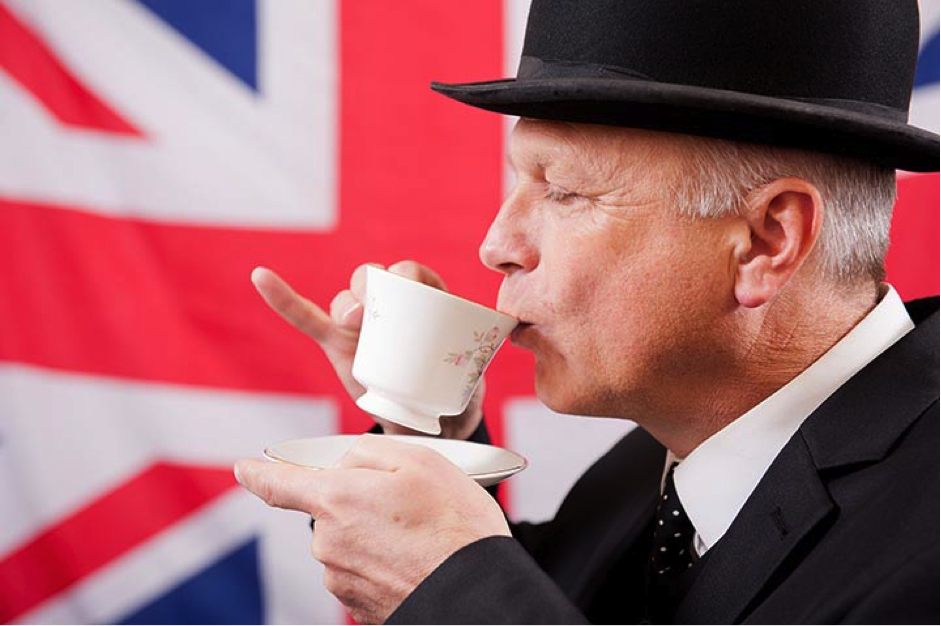You are full of prejudices about people you have never met before. But don’t worry about it, we all are.
When you hear someone talk, one of the first things you consider is their accent, and the stronger the accent, the more likely you are to notice it. This may seem obvious, but the subconscious judgements that you make about someone which are influenced by their accent can be huge. For example:
- Is this person telling me the truth?
- Do I respect this person?
- What is their social status?
And with someone of the opposite sex:
- Do I find this person attractive (would he or she be a good mate)?
Experiments have shown that infants are more likely to accept toys from people who speak their native language. Preschool children preferentially choose native-language speakers as friends. And different accents are enough to trigger these social preferences.

“Thumbs up if you don’t trust foreigners”
The accent we are most likely to trust is our own and that of our closest family, which makes evolutionary sense, as “stranger = danger”. But when it comes to attraction, there is clearly something else happening, because many people find certain foreign accents “hawt”.
Some commonly shared opinions
Ask a native-English-speaker which is the most attractive foreign accent and you will receive a variety of replies, but among the most commonly cited attractive accents are French and Italian. German-speakers would often come to the same conclusion about these accents in German.
For English and French speakers, however, the German accent does not hold the same appeal (this is of course entirely subjective). In the USA, Asian and Mexican accents are typically considered less attractive than, for example, a French accent.

What accent do you imagine this guy has?
It’s not just attractiveness we judge according to accent. Certain accents that may not be considered especially sexy may carry prestige in other ways. A scientific lecture, for example, or psychiatric report delivered with a thick German accent may actually carry more weight than in a native English accent.
So where do these judgements come from? And what can we learn from them?
Speech communities
There has been a great deal of research to suggest that we respond differently to different local accents. For example, although many people find a French accent sexy, there are a wide range of accents within the French-speaking world.
Where a native-English speaker would hear only ‘a (sexy) French accent’, a native-French-speaker will take clues from another native-French-speaker’s accent about class, education and more. We are much better at gleaning things like social status and geography in our native languages and social settings, and can start to make all of those snap judgements accordingly.
The mythical ‘British accent’ generally conveys high status in the USA, but Britain itself is home to a huge range of accents, and all of the social connotations that come with them. (In case you are wondering, Birmingham and Liverpool accents are considered ‘untrustworthy’, while the south-west is considered ‘friendly’, according to one recent poll). The same happens within any language large enough to have different native accents.

One theory suggests that the British accent’s relative prestige in the USA, and other former British colonies, is a legacy of when the Brits were the colonial masters. Brits are overrepresented as the “bad guys” in America’s cultural output, from childhood cartoons to Hollywood blockbusters, so perhaps there is some deep-seated postcolonial resentment.
We may believe that our judgements about accents are based on inherent beauty, and accents with fewer abrasive consonants and guttural sounds are probably easier to listen to, but most of our judgements probably come from somewhere else entirely.
Associations matter
The examples of the German-sounding scientist and British Hollywood baddie suggest that our associations about a certain group of people matter more than pronunciation itself. In the popular mind, French and Italian suggest romance, great food and classical culture, as do the countries where the languages are spoken.
German-speaking countries, meanwhile, have a reputation for science and engineering. From the psychoanalysts of Vienna to the automotive engineers of Stuttgart via Von Braun and Einstein, we associate Germanic culture with thoroughness, structure and studiousness.
As an accent is one of the clearest signals of belonging to a particular culture or group, and one of the easiest to recognise, we naturally extrapolate that Latin accent = attractive, Germanic accent = thoroughness.

Of course the associations go far further than this, and vary by society. For example, a Mexican accent in the USA carries comparatively low prestige because of the lower social status of illegal Mexican immigrants in the USA. In Europe, however, this association is nowhere near as strong.
The societal associations that we attach to an accent – whether a native accent or a foreign accent – are probably the major factor in what makes certain accents more attractive than others.
Prototype theory
Cognitive scientists have suggested that we conceptualise things through ideal versions, or prototypes. For example, if you were asked to name a bird, you would probably name a small to medium sized, warm-blooded, egg-laying animal with flappy wings, feathers and a beak. A robin or sparrow, for example. Ostriches and penguins are also birds, but they vary from our standard, or prototypical, bird because they can’t fly.
Different social groups can have different prototypes: children in Saharan Africa and Europe conceptualise trees differently, for example, because trees in the Sahara are not green and bushy.
The stereotypes of the passionate Latin lover, the rational Germanic professor and the British charmer/supervillain are commonplace in western culture, probably informing our own, internal prototypes. So we find certain accents more attractive because of what we associate with the culture behind that particular accent.
The biological foreign accent bonus
So we are deeply prejudiced and judgemental by nature, but why do many people find foreign accents irresistibly sexy?

Evolutionary theory suggests we find foreign accents attractive because they suggest a more exotic gene pool. Anyone who has travelled will know that simply being foreign makes you an object of interest in many places. If you are heard speaking with a different accent in a social setting, it is not unusual for someone to introduce themselves and ask where you are from.
So your exotic accent may just be the perfect icebreaker when meeting new people! If you are studying or living abroad, you will have plenty to talk about.
References:
Howard I. Aronson, The Role of Attitudes about Languages in the Learning of Foreign Languages, The Modern Language Journal, Vol. 57, No. 7 (Nov., 1973), pp. 323-329
Julia R. Dobrow and Calvin L. Gidney, The Good, the Bad, and the Foreign: The Use of Dialect in Children’s Animated Television, Annals of the American Academy of Political and Social Science, Vol. 557, Children and Television (May, 1998), pp. 105-119
Katherine D. Kinzler, Emmanuel Dupoux and Elizabeth S. Spelke, The Native Language of Social Cognition, Proceedings of the National Academy of Sciences of the United States of America, Vol. 104, No. 30 (Jul. 24, 2007), pp. 12577-12580
Image credits: Group of children in preschool, Mad Scientist, English Gentleman Drinking Tea, Sombrero hat, Boy and girl walk in park, all from Shutterstock

